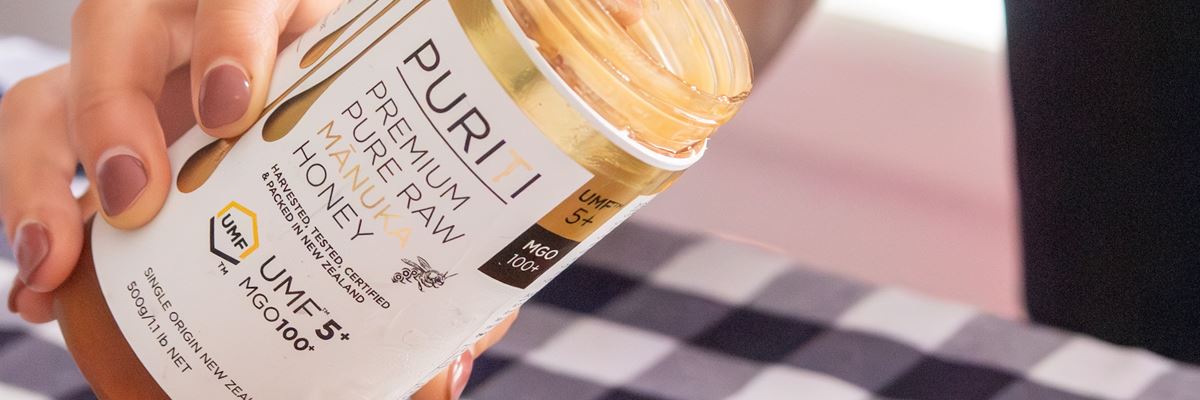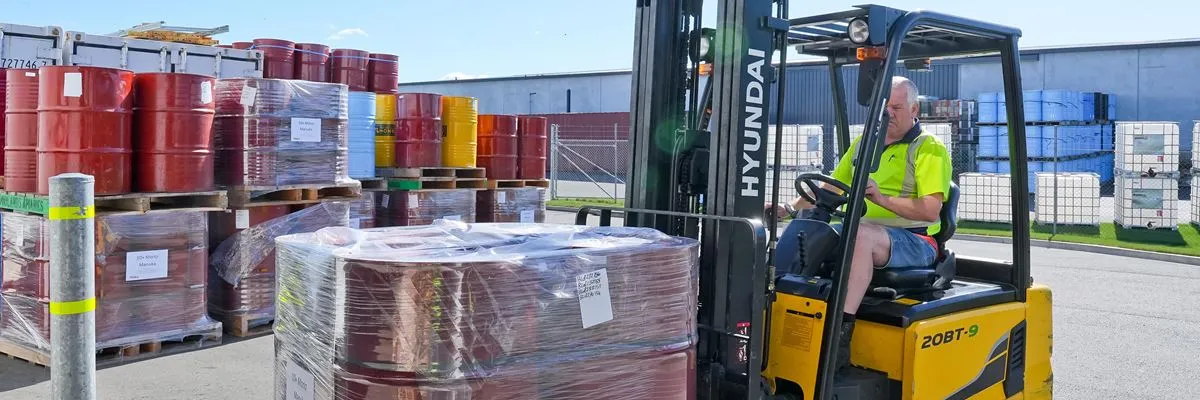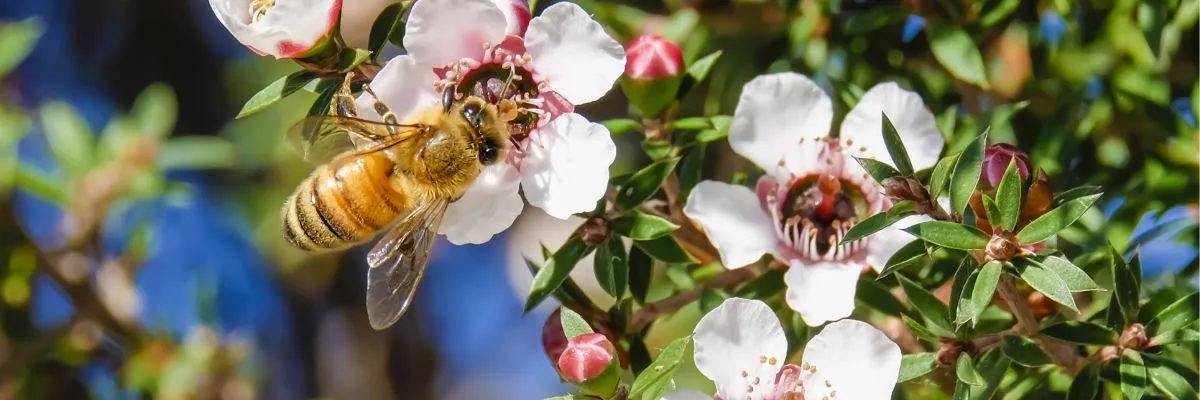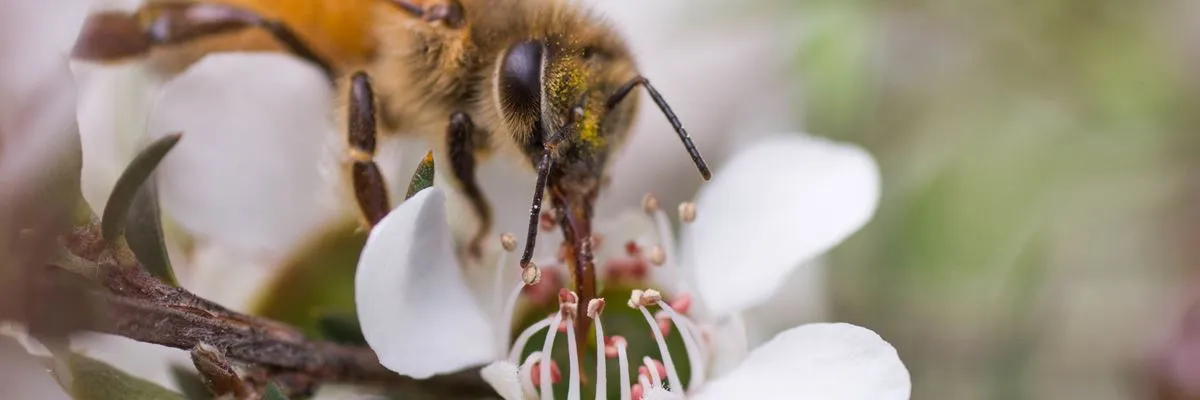What Separates Pure Manuka Honey From Conventional Honey?
September 2, 2022
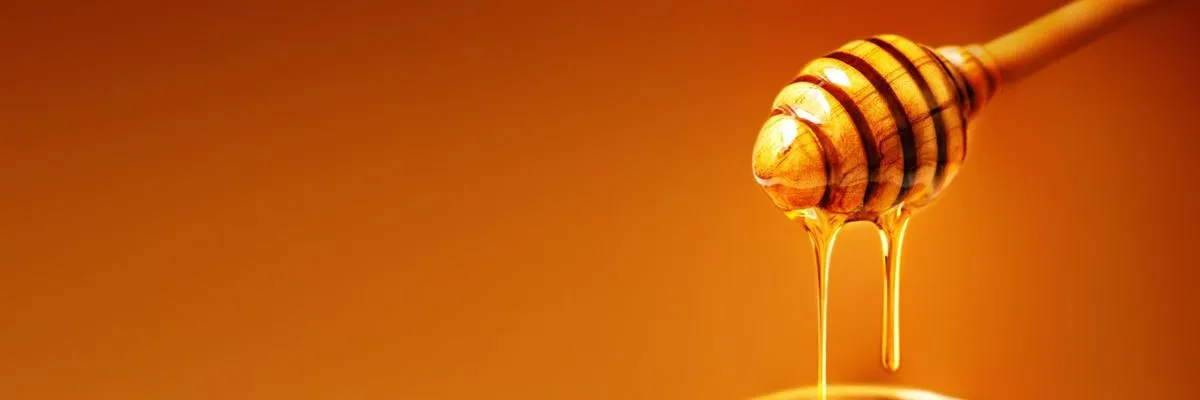
Considering expanding your product range to include genuine monofloral Mānuka honey? While you have found the right partner in Midlands Apiaries, it’s understandable that you may have some questions. Honey is a versatile product with wide varieties, consistencies, colours, and flavours. The team at Midlands Apiaries, however, are master craftsmen and knowledgeable on everything from conventional honey to the rarest monofloral Mānuka honey on the market.
As a guide to understanding the vast differences between these two very different honey types, this article will give you a comprehensive view of why and how these two varieties are vastly different.
What Does ‘Conventional Honey’ Mean?
The term ‘conventional honey’ is thrown around a lot but is there a formal definition? This honey is known for being processed and pasteurised to achieve a particular texture and look. Additionally, conventional honey is known for being ‘multifloral’ or diverse with its nectar species - there is little requirement for the flower species used in the production process. Depending on the location of the hives, several different nectar varieties can be included in conventional honey.
Here’s the typical process of making ‘conventional honey’:
1. Extraction
The honey is removed from the honeycomb cells via an extractor machine. The remaining wax is pressed heavily to pull as much honey as possible.
2. Heating
Also known as pasteurisation, the honey is heated to reduce moisture content, decrease crystallisation time, destroy yeast cells, and increase shelf life.
3. Filtration
This process is key in producing the clear honey we have always seen in the bottle or jar. In addition, filtering also removes any excess or remaining wax, pollen, and even bacteria.
4. Creaming
Although creaming sounds like a milk product is added, there are small crystals that are formed - preventing large ones from forming. This crystalising gives a creamy look and even makes the honey more spreadable.
Is Multifloral Manuka Honey Considered ‘Conventional’?
Although multifloral seems like any honey that isn’t monofloral, there are rules in place for Mānuka honey. According to the Ministry of Primary Industries (an arm of the New Zealand Government), there are still requirements for Mānuka honey to be categorised as multifloral. There is a formal Mānuka honey science definition that sets a benchmark for companies to be able to claim their product is genuine.
According to the NZ Government, multifloral Mānuka honey must still pass specific DNA and chemical tests for verification. A minimum concentration of unique ingredients must still be present for a multifloral variety.
Please read ‘The Difference Between Monofloral and Multifloral Manuka Honey’ for more information.
How Can I Be Sure That Monofloral Manuka Honey Is Authentic?
Firstly, the production process of monofloral Mānuka honey is done with as little touching as possible to maintain the raw and natural aspect of this rare honey. Certain chemicals are even measured for some certifications to validate that no heat treatment has been made to alter the natural honey state.
Looking at appearances only, it’s challenging to measure the quality of honey. Therefore, any certification of monofloral Mānuka honey will require extensive testing by approved laboratories. As mentioned in the Mānuka honey science definition above, several components must be present at given concentrations.
Additionally, one of the most sought-after ingredients within Mānuka honey includes methylglyoxal (MGO). This unique bioactive ingredient represents the potency of Mānuka honey and has been suggested to have special properties that further separate it from conventional honey.
Another key certification to be aware of is the Unique Mānuka Factor (UMF™). This validation method is widely considered to be the gold standard as it considers every important measurement.
For more information on UMF™, please read our recent article - ‘UMF™ Manuka Honey Grading Explained’
What Are The Benefits Of Using Manuka Honey Over Conventional Honey?
Honey has been used universally throughout history for several medicinal purposes. Mānuka honey has grown to become even more popular than historical honey. As mentioned above, the high concentrations of MGO may indicate a very rare and potent variety. Although extensive research is still being carried out, there has been speculation within the scientific community that MGO may contribute to some very interesting properties - including potential antibacterial activity.
Additionally, natural skincare fans of monofloral Mānuka honey have a lot of interest in this very exciting ingredient. As a natural humectant, Mānuka honey has been reported to have an excellent moisturising potential for the skin - the ideal ingredient for a hydrating skin product.
Midlands Apiaries Can Provide You With 100% Pure New Zealand Manuka Honey
Midlands Apiaries is the perfect partner for your brand. Wherever your business sits in a specific industry, i.e. skincare, natural foods or genuine Mānuka honey provider - we have all the latest technology and expertise to deliver what you want and when you need it. In addition, our widespread Mānuka honey supply and production operations can work with you to achieve your goals.
We also offer the services of a highly knowledgeable sales & marketing team. So, if you’re looking to bring a fantastic brand to market, our team of professionals can plan a pathway to your launch. With an extensive network of honey supplies and laboratories - Midlands Apiaries can provide your business with everything it needs.
Additionally, as the largest New Zealand supplier of wholesale Mānuka honey globally, Midlands Apiaries knows a thing or two about quality. An accredited, independent laboratory tests each batch of Mānuka honey from Midlands Apiaries for certification. We are very aware of the stringent requirements set forth by UMF™HA (Unique Mānuka Factor Honey Association). Our undeniable expertise in crafting Mānuka honey will give your business the necessary confidence to consistently deliver quality products.
Get in touch with us today for more information about how Midlands Apiaries can make for a beneficial partner in your budding business.
references
Girma, A., Seo, W., & She, R. C. (2019). Antibacterial activity of varying UMF-graded Manuka honeys. PloS one, 14(10), https://journals.plos.org/plosone/article?id=10.1371/journal.pone.0224495
Burlando, B., & Cornara, L. (2013). Honey in dermatology and skin care: a review. Journal of cosmetic dermatology, 12(4), 306-313. https://pubmed.ncbi.nlm.nih.gov/24305429/
Quick Navigation
Contact our team

Steve Williams
BCom (Mgt Sc)
Seed Multiplication Sales Manager
Midlands Seed
+64 27 553 0846seed@midlands.co.nz



Nick Kerr
BCom (Hons)
Honey Sales - North America & Europe
Midlands Apiaries
+64 27 807 9849honey@midlands.co.nz
Tasman Walker
BCom (Mktg) | BSc (Psy)
Honey Sales - Asia & Australia
Midlands Apiaries
+64 27 237 6318honey@midlands.co.nz
Hamish Finnie
BSc (Food Sc. & Hum. Nutr.)
Honey Sales - Greater China Region
Midlands Apiaries
+64 27 405 1273honey@midlands.co.nz








